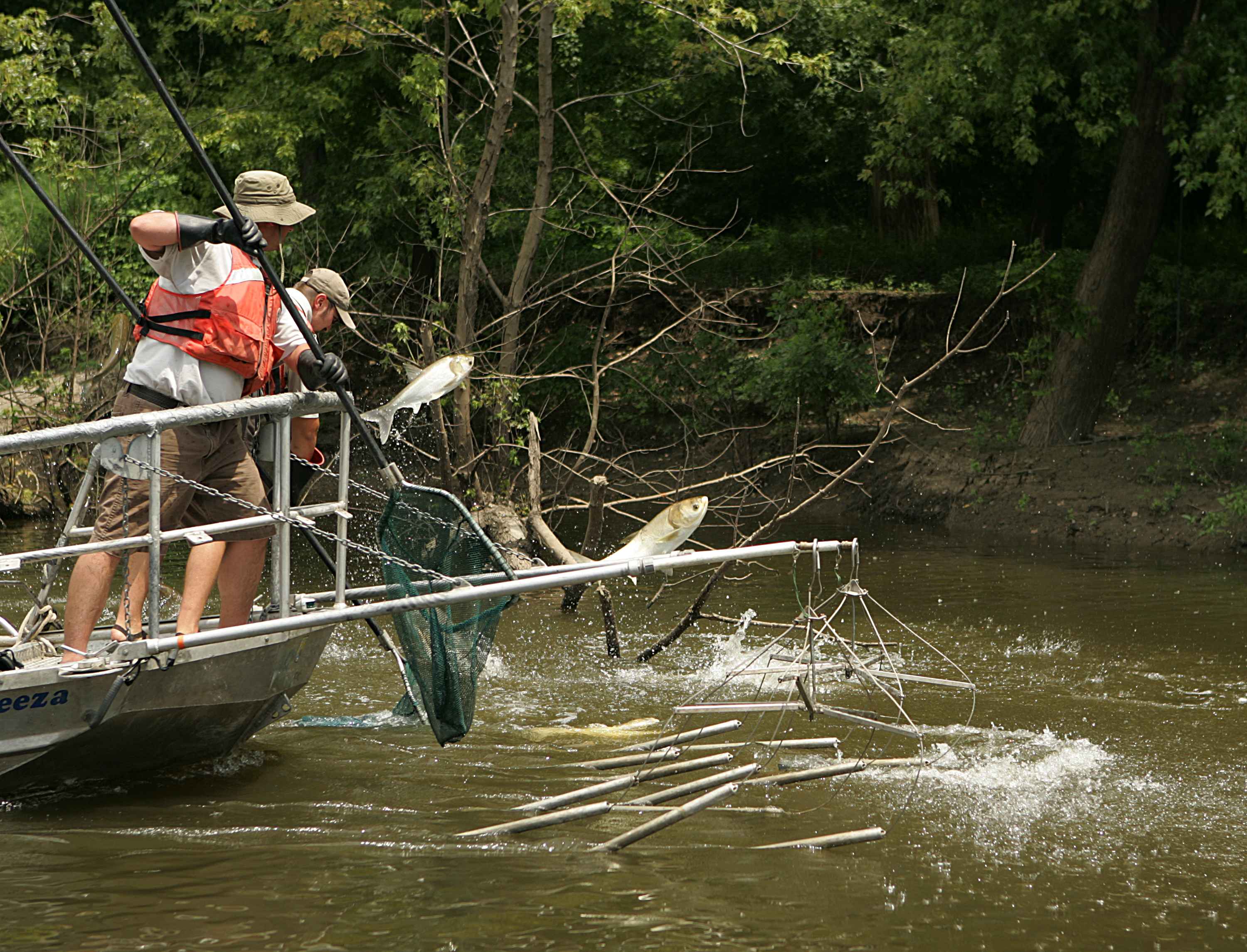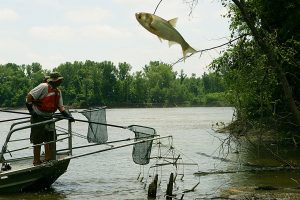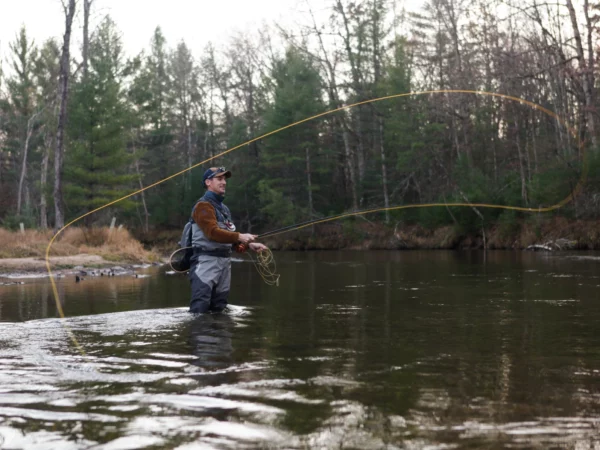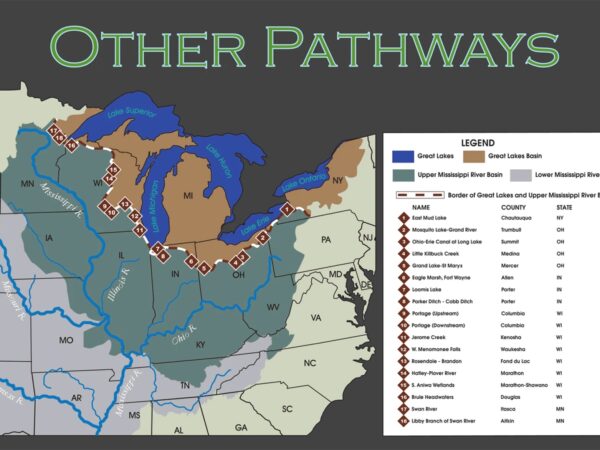
They’re coming. Let’s not pretend it isn’t happening anymore. And let’s try to do everything we can to keep Asian carp from destroying the Great Lakes.
That’s the message from Michigan U.S. Senators Debbie Stabenow and Gary Peters in an urgent letter they sent on January 12th to the U.S. Army Corps of Engineers.
In the letter, Senators Stabenow and Peters urge the U.S. Army Corps of Engineers to release new plans for ways to prevent Asian carp (also known as silver carp) and other invasive species from reaching Lake Michigan, and to finalize those plans immediately. The letter cites disturbing new research showing “collections of juvenile and larval Asian carp further upstream than previously recorded in the Illinois river.” The Senators want the recommendations put forth in a document called the Brandon Road Study to be implemented as soon as possible,( not in the span of 46 months as detailed in the most recent government report) in order to keep the potentially destructive invasive species out of the Great Lakes.
Senator Stabenow is Co-Chair, and Senator Peters is a member of the bipartisan Senate Great Lakes Task Force.
Senator Peters tells Great Lakes Now, “Asian carp are a serious threat to the Great Lakes that could significantly disrupt the region’s ecosystem and our state’s multibillion dollar shipping, boating and fishing industries. I urge the Army Corps of Engineers to finalize the Brandon Road plan as swiftly as possible to prevent Asian carp from entering the Great Lakes.”
So: what’s so bad about Asian carp? Pretty much everything.
They can reach as long as 4 feet and weigh more than 100 pounds. They eat almost everything they can, including plankton that supply food for lots of other fish, including whitefish. When motor boats get near schools of these huge fish, the sound and vibration seems to disturb them, so they leap out of the water in alarming and disturbing heights – up to 10 feet high.
They are a danger to people participating in water sports. Just imagine gliding along on waterskiis, in a sailboat, paddleboard, kayak, canoe or motorboat, and seeing a 100 pound fish emerge out of the water, and slam into you – or your watercraft. Sounds like a horror film, doesn’t it? But it’s what could actually happen if the Asian carp slithered up the Illinois River and made it into Lake Michigan.
The National Wildlife Federation says several boaters have suffered injuries from Asian carp in Illinois and other states, including broken jaws, ribs, arms and legs. The organization warns, “Dozens of carp may blast into the air at once.”
But perhaps more frightening is the damage the Asian carp could do to the Great Lakes 7 billion dollar fishing industry.
The N.W.F. says Asian or silver carp “feed by sucking up nearly half their own weight in algae and tiny aquatic animals every day. The fish can breed rapidly. A female big-head carp may produce 1.9 million eggs yearly, and up to 3 percent of them may become adult fish. “ The N.W.F. says, “Asian carp were introduced into Southern fish farm ponds in the 1970’s and quickly spread across the United States. They are now on the verge of invading the Great Lakes.” What’s worse: they have no natural predators.
The National Wildlife Federation says the U.S. Army Corps of Engineers already maintains three electric barriers to prevent Asian carp from entering Lake Michigan from the Chicago Waterways System, but they are only temporary, and “have proven to be penetrable.”
This is what Senators Stabenow and Peters are most worried about: that the DNA found in the Illinois River within 50 miles of Lake Michigan means female Asian or silver carp may already be making their way in to Lake Michigan.
Senator Stabenow tells Great Lakes Now, “I remain extremely concerned that Asian carp has been found just miles away from Lake Michigan. Time is running out to stop Asian carp from devastating our Great Lakes and the thousands of jobs and families that depend on them.”
The letter sent by Stabenow and Peters says the U.S. Army Corps of Engineers can not stand by and let the Asian carp cause environmental and economic damage to the Great Lakes. They write, “Completion of the plan is not only a key milestone in the process towards finalizing the Chief’s Report, but it will also provide critical information for policymakers at the state and federal levels to determine the most effective measures to prevent further Asian carp movement.”
You can view the complete letter here: www.stabenow.senate.gov





